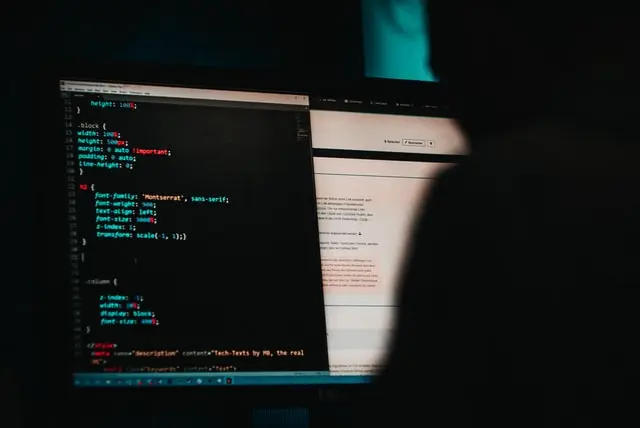What is a DDoS attack?
A distributed denial-of-service (DDoS) attack is an attempt to make a machine or network resource unavailable by flooding it with more traffic than it can handle. A DDoS attack often takes the form of a Distributed Denial of Service (DDoS) or a volumetric distributed denial-of-service attack, in which the attacker floods the target’s network with huge amounts of traffic from multiple sources. The flood of traffic from these multiple sources compounds into a high-volume deluge, denying services to legitimate users.
In the simplest terms, DDoS attacks are performed by redirecting large volumes of traffic from many different IP addresses toward the target’s server in such a way that they appear to be coming from legitimate users. It requires the attacker to have a full view of both a target’s incoming and outgoing Internet connections in order to deceive it as to the real origin of the pending connections.
DDoS attacks are common in both residential and business environments, where they manifest themselves differently due to technical nuances which will be discussed later in this paper.
Is DDoSing Illegal?
The short answer is yes. The procedure for DDoSing goes as follows: “A person who sends a message through the computer network of another, causing the recipient to experience an interruption of service, is guilty of a crime.” In addition to that, if this happens to a person’s business accounts or data, then it can result in fines up to $250,000 and five years in prison.
Also Read, Snapchat Not Loading Snaps? Here’s How to Fix.
.In layman’s terms, it is the act of attacking a company’s website by overloading it with information requests at once. DDoS attacks have been around for quite some time and have become more prevalent since 2008.
And though there are legal issues surrounding it, DDoS attacks are quite common. In 2014, the Washington Post reported that ” Hacktivist Group Anonymous Declares Cyber War on ISIS .” A DDoS attack was launched by a group known as Anonymous to take down websites that promote ISIS. Most of these attacks are committed out of passion or support for a cause. However, the majority of these attacks are performed to damage companies’ reputations and gain financial gain by extorting companies.
While this doesn’t excuse illegitimate reasons for causing such chaos on the internet, there are a few ways in which a company can protect itself against this type of attack.
Is DDoSing Illegal in the U.S?
The Computer Misuse Act 1990 in the United States makes it unlawful to deliberately hinder the performance of a computer or block access to data or programs on computers unless you are legally authorized to do this.
This implies it is a crime to Distributed Diffusion of Service (DDoS) and similar attacks are considered to be criminal according to UK law.
The Act also makes it unlawful to manufacture, supply or purchase booter or stresser services to facilitate DDoS attacks.
This law is in place because DDoS attacks as well as the use of booter or stresser services could cause serious harm to businesses, organizations, as well as individuals.
How Does a DDoS Attack Work?
The networks are comprised of various devices (such as IoT devices)which are infected by malware that allows remote control through an attack. The devices themselves are known by the name of bots (or zombies) and a collection of bots is referred to as botnets. botnet.
Once a botnet is created, the attacker is capable of directing an attack via remote instructions to every bot.
If a victim’s server or system is being targeted by a botnet, each bot makes requests to the targeted IP address and could cause the network or server to be overwhelmed and resulting in an interruption in normal service.
Because every bot is an authentic Internet device, detaching malicious traffic from normal traffic isn’t easy.
How to Report DDoS Attacks?
You can file a police report to law enforcement authorities you lose money as a result of the attack. You may be able to report a DDoS incident to the law enforcement officials if you have been blackmailed or threatened or if you’ve been unable to pay for your purchases because of the attack. In most cases, contact your national web crime unit. [10]
- In the US, file a complaint online with the FBI’s internet crime complaint center here: https://www.ic3.gov/default.aspx.[11]
- In the UK In the UK, dial 0300 123 2040 and report the incident at the National Fraud and Cyber Crime Reporting Centre.
- In Australia, submit an online report to the Cyber Security Center here: https://www.acsc.gov.au/incident.html.
- In Canada, contact your local police department.
Is It Illegal to Ddos Someone’s?
If you are thinking about doing some please stop. It is 100% illegal to DDosing someone.
Can a VPN Defend Against DDoS Attacks?
A VPN can’t help you defend yourself from a DDoS attack in the event that the attacker knows your actual IP address. If you suspect that someone could have access to your IP is registered, it is best to change it in order to enjoy the security benefits of your VPN.
Is DDoSing Illegal? – Conclusion
Almost in all the countries DDosing someone is considered as an illegal task. DDosing can cost a financial loss to any company in the world. Hope you got the answer for Is DDoSing Illegal.
References
- https://www.nationalcrimeagency.gov.uk/?view=article&id=243:ddos-attacks-are-illegal&catid=2#:~:text=DDoS%20attacks%20are%20illegal%20%2D%20National%20Crime%20Agency
- https://www.cloudflare.com/learning/ddos/what-is-a-ddos-attack/
- https://uk.practicallaw.thomsonreuters.com/7-516-9293?transitionType=Default&contextData=(sc.Default)
